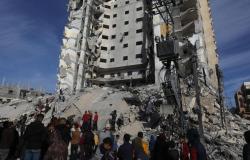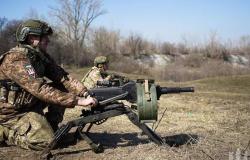The Russian aviation industry is a sector where Western sanctions really hit Russia hard, the Kyiv Post writes. In order not to go bankrupt, companies have to take increasingly extreme measures. Most recently, the low-cost daughter of the state-owned company Aeroflot decided to get rid of business class.
The group will cancel business class on its Rossiya Biznys Sukhoi Superjet 100 aircraft to compensate for the current shortage of medium-sized aircraft. The plan will be based on the maximum use of “cannibalized” parts from inoperable Superjet aircraft, which, although allegedly of domestic production, contain key components from the West.
If the changes prove successful, Aeroflot says it may expand the idea to other planes. It is another attempt to keep enough planes in service after the local aviation industry has been under Western sanctions for two years due to Russian aggression in Ukraine.
Aeroflot already had to solve the problem of replacing worn brakes on its Airbus and Boeing planes last September. The company resolved this by disabling the brakes on nine of its planes. Aeroflot pilots were ordered to use only thrust reversers to slow down the planes when landing. Although this is a recognized emergency procedure in the event of brake failure, it was never designed as a proper braking system.
Other measures include sending aircraft to Iran for “uncertified” repairs and maintenance from smuggled or counterfeit parts. In August, independent Russian media outlet Proekt reported that Aeroflot had instructed pilots and flight attendants to stop recording technical malfunctions or malfunctions in the logbook and to only verbally inform the captain of any problems.
Problems also concern private companies. Siberian Airlines, for example, has to operate half-century-old An-24 and An-26 machines due to a lack of aircraft. They admit they have problems with engine overhauls.
In January of this year, the American newspaper The Washington Post (WP) wrote that airliner accidents have been a daily occurrence in Russia recently. According to Rádio Svobodná Evropa, for example, in December there was not a single day in the statistics without an accident, an emergency landing or an aborted takeoff due to technical problems.
For example, on December 8, passengers on board a Boeing 737 on the route from Novosibirsk to Moscow heard a loud bang during takeoff. Both of the plane’s engines ignited and began spewing flames.
On the same day, an Airbus A319 bound for St. Petersburg made an emergency landing after losing cabin pressure shortly after takeoff from Mineralnye Vody airport in southern Russia. Videos posted on the Telegram platform showed passengers crying and screaming as oxygen masks dropped from the ceiling, The Washington Post reported.
Russian aviation safety expert Andrey Patrakov warns that Russian authorities are letting airlines use components long after their useful life, increasing the risk of them failing in flight. Even before the Western sanctions, according to Patrakov, the security of Russian aviation was “absolutely catastrophic”.
“Russia is facing very difficult times.” There is a dark story behind economic growth. (Full article with video here)
“Despite the better outlook for growth, the Russian economy is facing very difficult times,” says IMF chief Kristalina Georgieva. | Video: Reuters
Tags: Catastrophic safety increasingly strange interventions Russian planes
-





